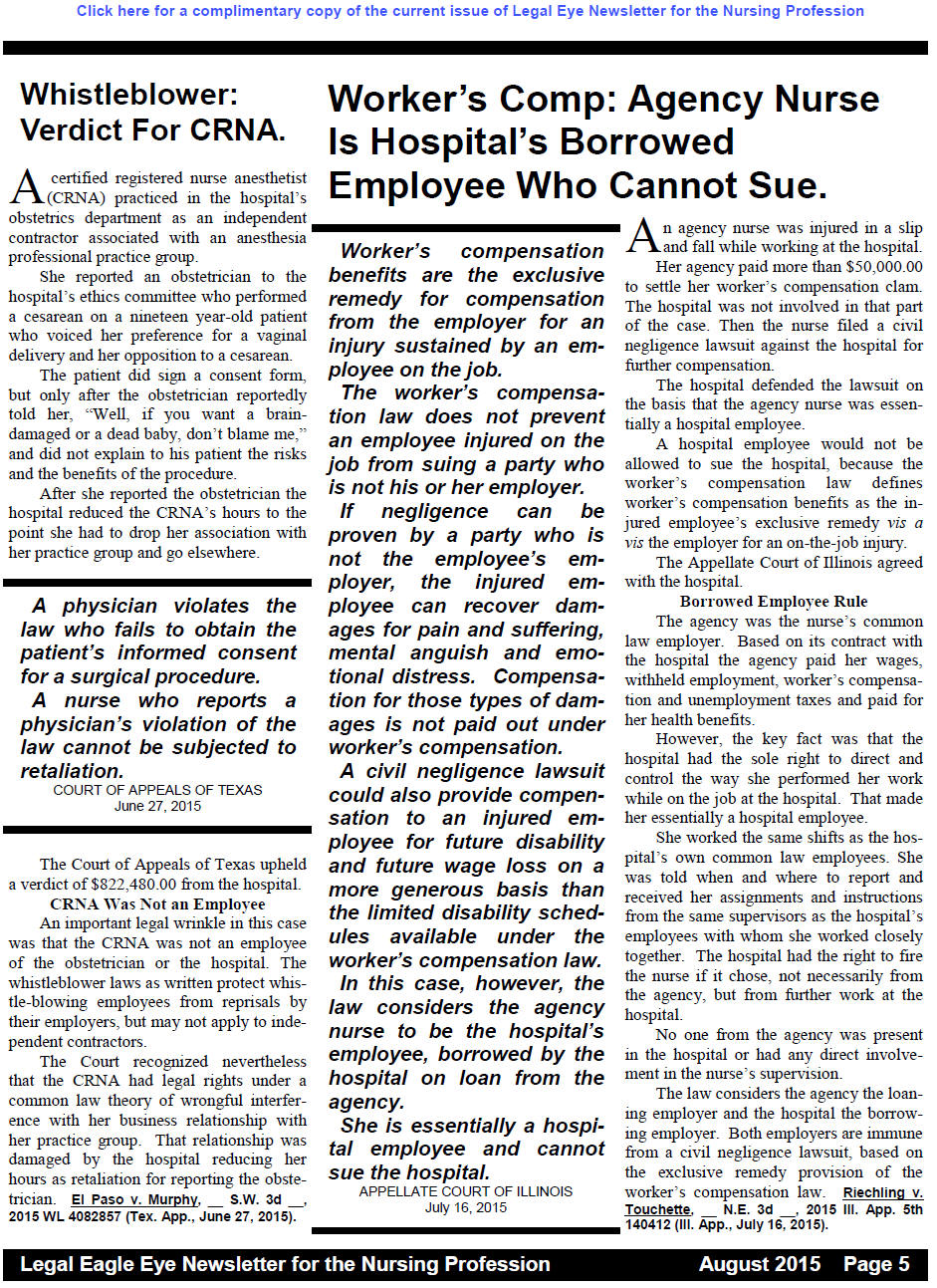
Workers compensation benefits are the exclusive remedy for compensation from the employer for an injury sustained by an employee on the job.
The workers compensation law does not prevent an employee injured on the job from suing a party who is not his or her employer.
If negligence can be proven by a party who is not the employee's employer, the injured employee can recover damages for pain and suffering, mental anguish and emotional distress. Compensation for those types of damages is not paid out under workers compensation.
A civil negligence lawsuit could also provide compensation to an injured employee for future disability and future wage loss on a more generous basis than the limited disability schedules available under the workers compensation law.
In this case, however, the law considers the agency nurse to be the hospital’s employee, borrowed by the hospital on loan from the agency.
She is essentially a hospital employee and cannot sue the hospital. APPELLATE COURT OF ILLINOIS July 16, 2015
An agency nurse was injured in a slip and fall while working at the hospital.
Her agency paid more than $50,000.00 to settle her workers compensation clam. The hospital was not involved in that part of the case. Then the nurse filed a civil negligence lawsuit against the hospital for further compensation.
The hospital defended the lawsuit on the basis that the agency nurse was essentially a hospital employee.
A hospital employee would not be allowed to sue the hospital, because the workers compensation law defines worker’s compensation benefits as the injured employee’s exclusive remedy vis a vis the employer for an on-the-job injury.
The Appellate Court of Illinois agreed with the hospital.
The agency was the nurses common law employer. Based on its contract with the hospital the agency paid her wages, withheld employment, workers compensation and unemployment taxes and paid for her health benefits.
However, the key fact was that the hospital had the sole right to direct and control the way she performed her work while on the job at the hospital. That made her essentially a hospital employee.
She worked the same shifts as the hospital's own common law employees. She was told when and where to report and received her assignments and instructions from the same supervisors as the hospital's employees with whom she worked closely together. The hospital had the right to fire the nurse if it chose, not necessarily from the agency, but from further work at the hospital.
No one from the agency was present in the hospital or had any direct involvement in the nurse's supervision.
The law considers the agency the loaning employer and the hospital the borrowing employer. Both employers are immune from a civil negligence lawsuit, based on the exclusive remedy provision of the worker's compensation law. Riechling v. Touchette, __ N.E. 3d __, 2015 Ill. App. 5th 140412 (Ill. App., July 16, 2015).